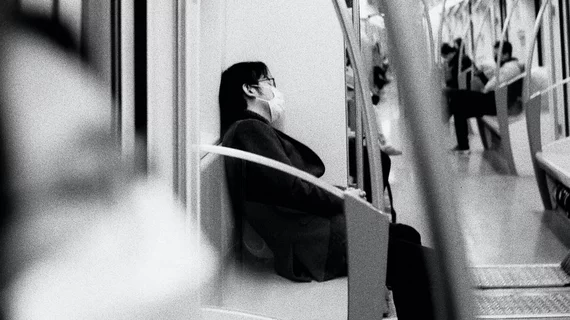Biden administration fights mask mandate repeal
The Biden administration is fighting back and appealing a ruling that overturned the federal mask mandate on airlines and public transportation. The administration said it depends on the recommendation of the Centers for Disease Control and Prevention (CDC) for what is best for public health.
The controversy comes after a Florida judge struck down the federal mandate that required passengers to wear face masks on airplanes, in airports and while using other public transportation because of the ongoing COVID-19 pandemic. U.S. District Judge Kathryn Kimball Mizelle declared the mandate, which has been in effect for nearly two years, unlawful.
Airlines immediately rescinded their mask requirements in wake of the decision, while some healthcare groups voiced their opposition. The repeal of the mandate came just days after the CDC extended the mask mandate until at least May 3. The Biden administration said it will appeal the decision if the CDC deems it necessary.
“The Department of Justice and the [CDC] disagree with the district court’s decision and will appeal, subject to CDC’s conclusion that the order remains necessary for public health,” the DOJ said in a statement. “The department continues to believe that the order requiring masking in the transportation corridor is a valid exercise of the authority Congress has given CDC to protect the public health. That is an important authority the department will continue to work to preserve… If CDC concludes that a mandatory order remains necessary for the public’s health after that assessment, the Department of Justice will appeal the district court’s decision.”
While COVID infections have dropped significantly since the start of the year, there was a recent uptick. CDC said it continues to monitor the spread of the COVID Omicron variant, especially the BA.2 subvariant that now makes up more than 85% of U.S. cases. Since early April, the CDC said there have been again been increases in the 7-day moving average of cases in the U.S. due to the new variant.
Many healthcare groups stated the ruling will not have any impact on their facilities, since they will still require mask wearing.
The CDC did decide April 20 it is necessary to appeal the judge's decision.
“It is CDC’s continuing assessment that at this time an order requiring masking in the indoor transportation corridor remains necessary for the public health,” the CDC said in a statement. “CDC will continue to monitor public health conditions to determine whether such an order remains necessary. CDC believes this is a lawful order, well within CDC’s legal authority to protect public health.”
Related COVID Impact on Healthcare Content:
VIDEO: Vaccines boosted survival among STEMI patients with COVID-19
Supreme Court allows CMS vaccine mandate for healthcare workers, blocks rule for large businesses
AI predicts COVID prognosis at near-expert level using CT scoring system
Imaging suggests blood clots are more common in COVID than pneumonia
AHA asks Congress to provide more COVID-19 funds
New COVID-19 study links nurses’ mental health to quality of care
President Biden outlines new COVID plan in state of the union address
Omicron COVID variant slammed hospitals in January
HHS allocating $560M in payments to healthcare providers impacted by COVID-19 pandemic
95% of doctors believe COVID-19 has exposed cracks in the medicine supply chain
People with symptoms of depression more likely to believe COVID vaccine misinformation

